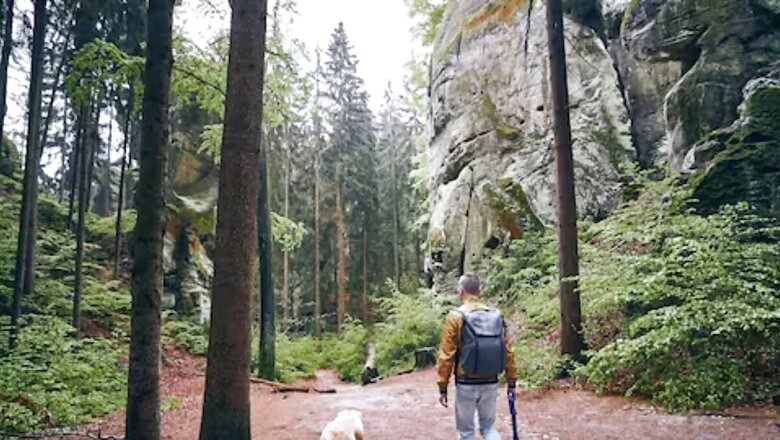
views
Dinosaurs ruled the Earth for more than 150 million years. Some of them were the largest and scariest creatures that ever lived on our planet. There were more than 2000 species of dinosaurs that existed. Scientists and researchers have developed several theories about the extinction of dinosaurs. Some of them suggest that a giant asteroid had hit Earth, killing all the possible species of dinosaurs, while others believe that a volcano erupted and killed all of them.
Over the years, palaeontologists have found several fossils of dinosaurs. Now, it has been reported that a man found a 70 million-year-old fossil of a dinosaur in France. But the strange fact about his discovery was that he kept it hidden from the world for two years.
According to reports, in 2022, Damien Boschetto discovered a 70-million-year-old dinosaur fossil, which was the complete skeleton of a Titanosaurus. The unexpected discovery by 25-year-old Buscato was made in the forest near his home in the village of Creuse in southern France while walking his dog. It has been reported that the area around Creuse is rich in fossils of dinosaurs and other animals of that era.
In the past 29 years, the area has been a hub for dinosaur fossils, and many of them have been found. The fossil found by Boschetto is of Titanosaurus, who lived between 163.5 million and 66 million years ago.
The long-necked Titanosaurus was the largest animal in the era of dinosaurs. They were the size of modern whales, and there were about 40 different species. They lived on every continent except Antarctica. But Boschetto had kept the discovery hidden from everyone for about two years. He is very fond of palaeontology, and he saw the protruding bone of this fossil, which was then taken out. He found that 70 per cent of the fossil of that 30-foot Titanosaurus was completely intact. He said that initially, they felt like separate pieces. However, after proper excavation, it was found that all the bones belonged to the same skeleton.
Boschetto revealed that he kept this secret with the Archaeological and Paleontological Cultural Association (ACAP) because he wanted to keep this site safe from public eyes so that people didn’t come out in large numbers to see it.



















Comments
0 comment